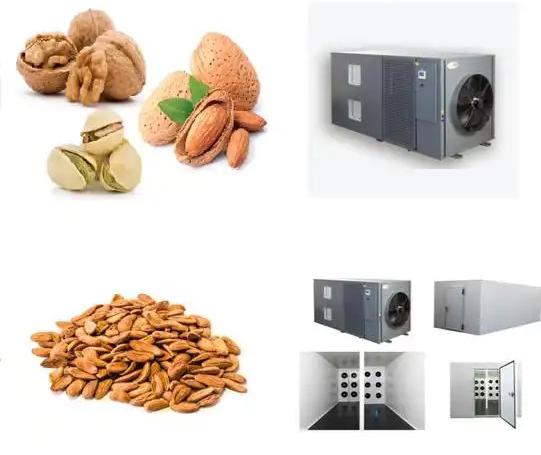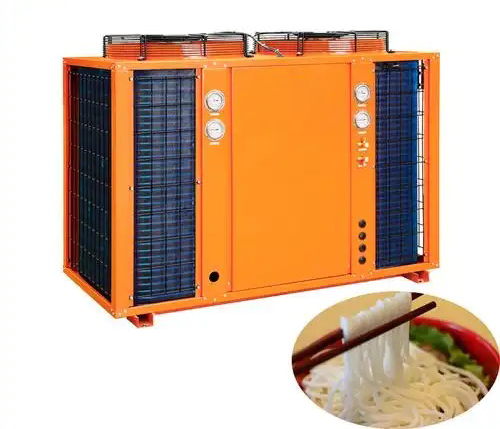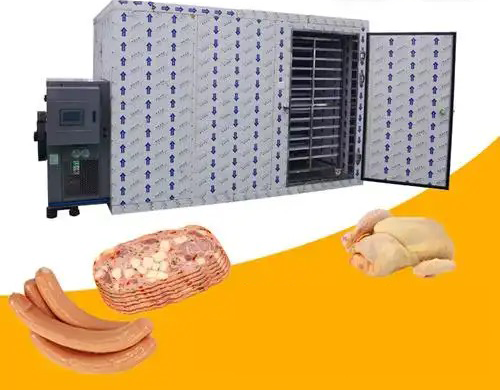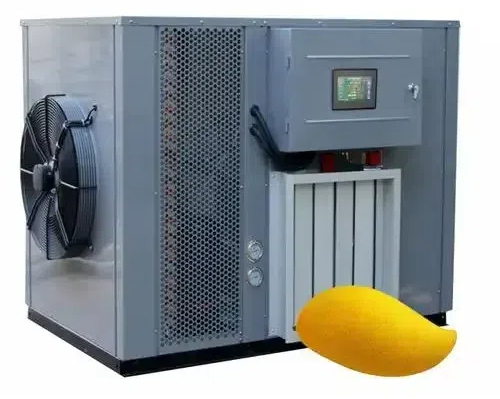
Content Menu
● Understanding Heat Pump Dryers
● How Heat Pump Dryers Work
● Advantages of Heat Pump Dryers for Food Processing
● Are Cheap Heat Pump Dryers Worth the Investment?
>> Initial Cost vs. Long-Term Savings
>> Quality and Durability
>> Performance and Efficiency
>> Warranty and Support
● The Importance of Energy Efficiency in Food Processing
● Case Studies of Heat Pump Dryer Applications
● Innovations in Heat Pump Dryer Technology
● Conclusion
● Frequently Asked Questions
>> 1. What types of food can be dried using heat pump dryers?
>> 2. How long does the drying process take with a heat pump dryer?
>> 3. Are heat pump dryers suitable for commercial use?
>> 4. What maintenance is required for heat pump dryers?
>> 5. Can heat pump dryers be used in humid environments?
In recent years, the demand for energy-efficient appliances has surged, particularly in the food processing industry. As a manufacturer of food dryers in China, we understand the importance of providing high-quality, energy-efficient solutions to our clients, including OEM services for international brands, wholesalers, and producers. This article explores the benefits of heat pump dryers, particularly in the context of food drying, and discusses whether investing in cheaper models is worthwhile for energy savings.

Understanding Heat Pump Dryers
Heat pump dryers are a type of drying technology that utilizes a heat pump to transfer heat from the environment to the drying chamber. Unlike traditional dryers that expel hot air, heat pump dryers recycle the air within the system, making them significantly more energy-efficient. This technology is particularly beneficial for food drying, as it allows for lower drying temperatures, preserving the quality and nutritional value of the food.
How Heat Pump Dryers Work
Heat pump dryers operate by using a refrigeration cycle. The process begins with the evaporator, where moisture-laden air is drawn into the system. The heat pump extracts heat from this air, cooling it down and causing the moisture to condense. The dry air is then reheated and circulated back into the drying chamber, where it absorbs more moisture from the food. This cycle continues until the desired moisture content is achieved.
Advantages of Heat Pump Dryers for Food Processing
1. Energy Efficiency: One of the most significant advantages of heat pump dryers is their energy efficiency. They can reduce energy consumption by up to 50% compared to conventional drying methods. This is particularly important for food manufacturers looking to lower operational costs.
2. Gentle Drying: Heat pump dryers operate at lower temperatures, which helps preserve the quality of the food. This is crucial for maintaining the flavor, color, and nutritional value of dried products.
3. Versatility: These dryers can handle a wide range of food products, from fruits and vegetables to meats and herbs. Their adjustable settings allow for precise control over the drying process.
4. Environmentally Friendly: By using less energy, heat pump dryers contribute to a reduction in greenhouse gas emissions. This aligns with the growing trend towards sustainable practices in food production.
5. Reduced Operating Costs: Although the initial investment in a heat pump dryer may be higher than traditional dryers, the long-term savings on energy bills can make them a more cost-effective option.
Are Cheap Heat Pump Dryers Worth the Investment?
When considering whether to invest in a cheap heat pump dryer, several factors come into play:
Initial Cost vs. Long-Term Savings
While cheaper models may seem appealing due to their lower upfront costs, it is essential to consider the long-term savings on energy bills. High-quality heat pump dryers, although more expensive initially, often come with better energy efficiency ratings, leading to significant savings over time.
Quality and Durability
Cheap heat pump dryers may compromise on quality and durability. Investing in a reputable brand ensures that the dryer will withstand the rigors of daily use in a commercial setting. A reliable machine will require fewer repairs and replacements, ultimately saving money in the long run.

Performance and Efficiency
The performance of a heat pump dryer is crucial for food processing. Cheaper models may not provide the same level of efficiency or drying quality as their more expensive counterparts. This can lead to longer drying times and inconsistent results, which can affect product quality and customer satisfaction.
Warranty and Support
Reputable manufacturers often provide warranties and customer support for their products. Cheaper models may lack adequate support, leaving users to deal with issues on their own. Investing in a quality heat pump dryer typically comes with peace of mind, knowing that help is available if needed.
The Importance of Energy Efficiency in Food Processing
Energy efficiency is not just a trend; it is becoming a necessity in the food processing industry. With rising energy costs and increasing environmental regulations, manufacturers are under pressure to find ways to reduce their energy consumption. Heat pump dryers offer a solution that not only meets these demands but also enhances the overall quality of the product.
Case Studies of Heat Pump Dryer Applications
Several case studies highlight the effectiveness of heat pump dryers in various food processing applications. For instance, a fruit processing company that switched to a heat pump dryer reported a 40% reduction in energy costs while improving the quality of their dried fruits. The lower drying temperatures preserved the natural colors and flavors, leading to higher customer satisfaction and increased sales.
Similarly, a vegetable processing plant found that using a heat pump dryer allowed them to dry their products more evenly, reducing the risk of spoilage and waste. The ability to control the drying environment precisely meant that they could produce a consistent product that met their quality standards.
Innovations in Heat Pump Dryer Technology
The technology behind heat pump dryers is continually evolving. Recent innovations include advanced control systems that allow for real-time monitoring of temperature and humidity levels, ensuring optimal drying conditions. Some models now feature integrated sensors that automatically adjust the drying parameters based on the type of food being processed, further enhancing efficiency and product quality.
Additionally, manufacturers are exploring the use of renewable energy sources to power heat pump dryers, further reducing their environmental impact. Solar panels and wind turbines can be integrated into the drying process, making it possible to operate these machines with minimal reliance on fossil fuels.
Conclusion
In conclusion, while cheap heat pump dryers may offer an attractive initial price, the long-term benefits of investing in a high-quality model are clear. Energy savings, improved performance, and durability make them a worthwhile investment for food manufacturers. As a leading manufacturer of food dryers in China, we are committed to providing our clients with the best solutions tailored to their needs.

Frequently Asked Questions
1. What types of food can be dried using heat pump dryers?
Heat pump dryers can be used to dry a variety of foods, including fruits, vegetables, meats, and herbs.
2. How long does the drying process take with a heat pump dryer?
The drying time varies depending on the type of food and its moisture content, but heat pump dryers generally take longer than traditional dryers due to their lower operating temperatures.
3. Are heat pump dryers suitable for commercial use?
Yes, heat pump dryers are ideal for commercial use, offering high efficiency and the ability to handle large batches of food.
4. What maintenance is required for heat pump dryers?
Regular maintenance includes cleaning the filters, checking for blockages, and ensuring the heat pump system is functioning correctly.
5. Can heat pump dryers be used in humid environments?
Yes, heat pump dryers are designed to operate efficiently in various environmental conditions, including humid climates.












